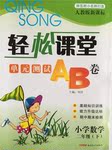题目内容
"How was school, Ben?" I asked my after he began kindergarten(幼儿园) this year. "The work is too and there's not enough time to play." he replied with a deep .
I couldn't help but remember Ben's mother. my daughter, Jane, and her to the first day of school. When Julie home that afternoon. I asked her the same question . She also replied with a long, face but her answer was a little different as she announced . " I didn't learn to today."
What a disappointment for a little girl who thought she would know how to read her little books after the first day of s chool. I had to explain to her that she would learn to read but didn't happen quite that fast.
chool. I had to explain to her that she would learn to read but didn't happen quite that fast.
My went back to my school days again I could almost the chalk dust in the air. I suppose few schools still use chalk and blackboards. They have probably been with newer equipment and large computer screens
On the first day of school, the expectation was s0 that I would be up early in the morning and long before it was time to leave for school We . about 6 blocks to school new shoes that felt tight and carried  our small supplies inside a cigar box from one of the local stores. The stores must have saved cigar boxes just to give to us children .We them from year to year until they fell apart.
our small supplies inside a cigar box from one of the local stores. The stores must have saved cigar boxes just to give to us children .We them from year to year until they fell apart.
The first day of school was a new beginning, although there might be on the first day. The doors of knowledge had been opened and we great learning adventures. It is an in our lives that most of us remember. It's a big step for a small child toward leaving babyhood and so "there isn't enough time to play".
1.A. son B. grandson C. brother D. cousin
2.A. short B. loose C. hard D. long
3.A. cheer B. expression C. concern D. sigh
4.A. attention B. approach C. reaction D. access
5.A. returned B. left C. headed D. escaped
6.A. cheerful B. friendly C. sad D. familiar
7.A. write B. read C. listen D. speak
8.A. widely B. magically C. perfectly D. commonly
9.A. eventually B. originally C. occasionally D. constantly
10.A. idea B. view C. mind D. sight
11.A. smell B. imagine C. taste D. reach
12.A. decorated B. replaced C. exchanged D. equipped
13.A. small B. great C. faint D. slight
14.A. anxious B. nervous C. curious D. ready
15.A. walked B. drove C. ran D. rode
16.A. on B. in C. by D. with
17.A. saved B. used C. protected D. hid
18.A. excitement B. anxiety C. disappointment D. sorrow
19.A. expected B. promised C. demanded D. appreciated
20.A. matter B. affair C. fact D. event
1.B
2.D
3.D
4.C
5.A
6.C
7.B
8.B
9.A
10.C
11.A
12.D
13.B
14.D
15.A
16.B
17.B
18.C
19.A
20.D
【解析】
试题分析:文章介绍了作者的女儿,孙子对开学第一天的看法,引发感想开学第一天是开始学习的日子。学校的第一天是一个新的开始,尽管可能在第一天会有些失望。
1.
2.and there's not enough time to play.可知这里意思是他回答说,学习时间太长。Short短的;loose松的;hard困难的;long长的,故选D。
3. and there's not enough time to play." he replied with a deep .可知没有足够的时间玩,他深深叹了口气。Cheer欢呼;expression表达;concern关心;sigh叹气,故选D。
4. to the first day of school.可知我女儿第一天上学的反应。Attention注意力;approach方法;reaction反应;access入口,故选C。
5. home that afternoon. I asked her the same question .可知这里意思是当Julie那天下午回到家。Returned回来;left离开;headed带领;escaped逃跑,故选A。
6. face but her answer was a little different as she announced . " I didn't learn to today." 可知这里意思是她也是神情悲伤的回答。Cheerful欢乐的;friendly友好的;sad 悲伤的;familiar熟悉的,故选C。
7. know how to read her little books after the first day of s chool.可知这里意思是我今天没有学习阅读。Write写;read读;listen听;speak说,故选B。
chool.可知这里意思是我今天没有学习阅读。Write写;read读;listen听;speak说,故选B。
8. know how to read her little books after the first day of s chool.可知这里意思是她认为在第一天放学后,自己就魔法般地知道怎样读自己的小书了。Widely广泛地;magically如魔法般地;perfectly完美地;commonly通常地,故选B。
chool.可知这里意思是她认为在第一天放学后,自己就魔法般地知道怎样读自己的小书了。Widely广泛地;magically如魔法般地;perfectly完美地;commonly通常地,故选B。
9. learn to read but didn't happen quite that fast.可知这里意思是我解释说她总归会学会阅读的。Eventually总归;originally起初;occasionally偶尔;,constantly不断地,故选A。
10. went back to my school days again I could almost the chalk dust in the air.可知我的精神回到我读书的时代。Idea主意;view风景;mind精神;sight视力,故选C。
11.
12. with newer equipment and large computer screens
可知这里意思是他们可能装备着新的设备和大的电脑屏幕。Decorated装饰;replaced代替;exchanged交换;equipped装备,故选D。
13. that I would be up early in the morning可知这里想说第一天上学,我的期待是那样大,以至于早上很早就起来了。Small小的;great大的;faint模糊的;slight微小的,故选B。
14.
15. about 6 blocks to school new shoes that felt tight and carried  our small supplies inside a cigar box from one of the local stores.可知这里意思是走六个街区到学校。Walked走;drove驾车;ran跑;rode骑车,故选A。
our small supplies inside a cigar box from one of the local stores.可知这里意思是走六个街区到学校。Walked走;drove驾车;ran跑;rode骑车,故选A。
16.
17. them from year to year until they fell apart.可知这里意思是我们一年一年的用,直到坏掉。Saved节省;used使用;protected保护;hid隐藏,故选B。
18. on the first day.可知这里意思是学校的第一天是一个新的开始,尽管可能在第一天会有些失望。Excitement激动;anxiety忧虑;disappointment失望;sorrow悲痛。故选C。
19. great learning adventures.可知我们期待着伟大的学习经历。Expected期待;promised许诺;demanded要求;appreciated感激,故选A。
20.
考点:考查故事类短文

 课堂练加测系列答案
课堂练加测系列答案 轻松课堂单元测试AB卷系列答案
轻松课堂单元测试AB卷系列答案 "But we can put it on a higher position"
"But we can put it on a higher position" of service to them, and them change this habit.
of service to them, and them change this habit.